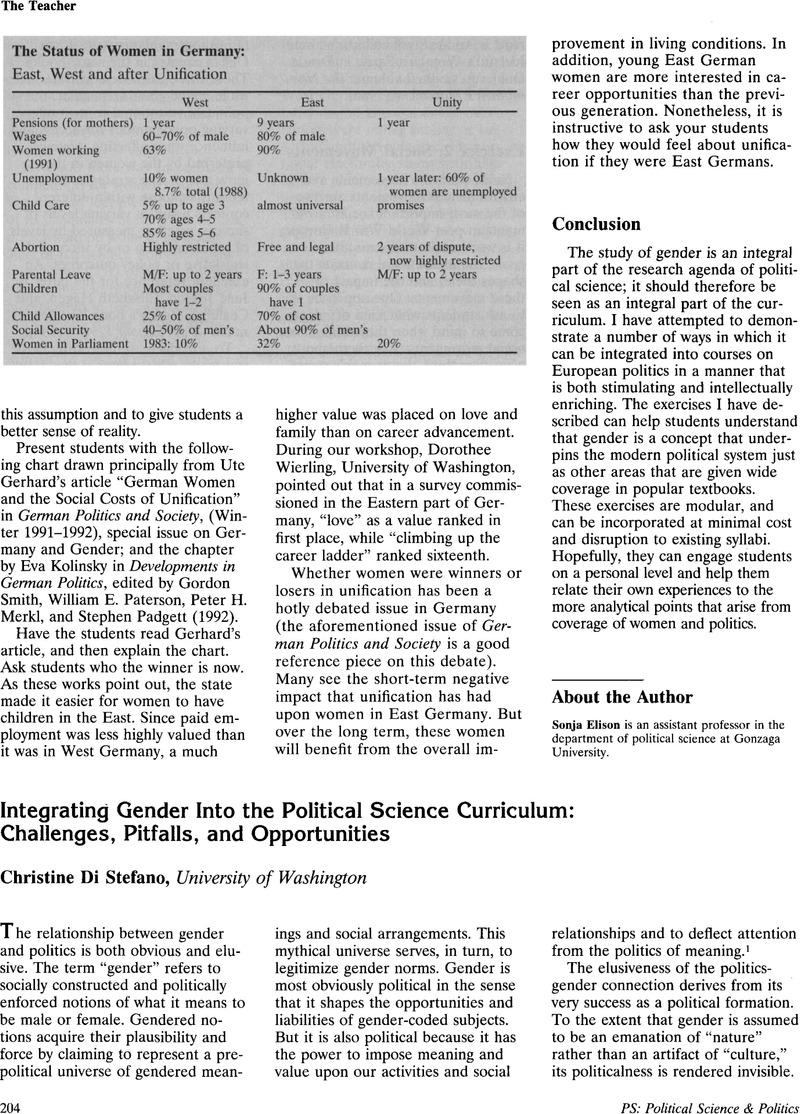Crossref Citations
This article has been cited by the following publications. This list is generated based on data provided by Crossref.
Dodson, Debra L.
1997.
Change and Continuity in the Relationship Between Private Responsibilities and Public Officeholding: The More Things Change, the More They Stay the Same.
Policy Studies Journal,
Vol. 25,
Issue. 4,
p.
569.
Byrne, Lesley Hyland
1997.
Feminists in Power: Women Cabinet Ministers in the New Democratic Party (NDP) Government of Ontario, 1990–1995.
Policy Studies Journal,
Vol. 25,
Issue. 4,
p.
601.
Dovi, Suzanne
2007.
Theorizing Women's Representation in the United States.
Politics and Gender,
Vol. 3,
Issue. 03,
2007.
The Good Representative.
p.
228.
Lyle-Gonga, Marsha
2013.
A Critical Analysis of Gender Mainstreaming.
Politics & Gender,
Vol. 9,
Issue. 02,
p.
209.





